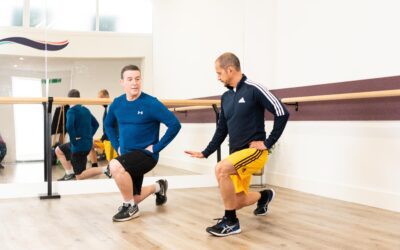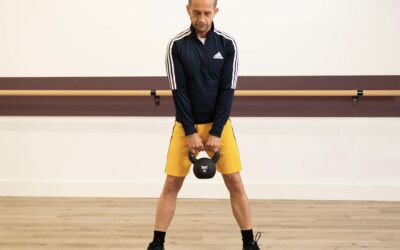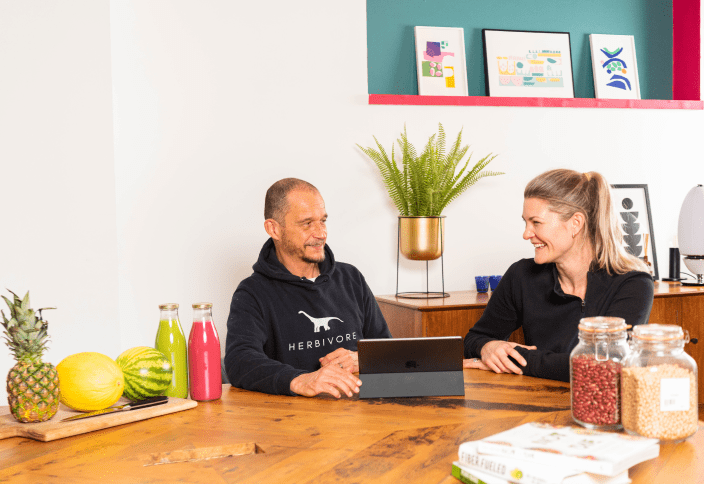If you have recently got into or returned to exercise and built an exercise habit (see my second blog – Building an Exercise Habit) you may be wondering how to plan your exercise programme to get the most out of it.
This is a question that trainers and coaches have been asking for decades, and still ask today. This means that there is now a fairly standard set of principles upon which we can base our exercise programme planning and I am going to take you through them. The key is to get an understanding of the principles of training.
When we talk about training we are referring to repeated bouts of exercise over a period of time. The aim of training is to improve one or more types of fitness, i.e. endurance, speed/power, strength, coordination/balance, flexibility.
To understand how training can improve our fitness we need to consider the key principles of training:
- Overload
- Recovery
- Adaptation
- Specificity
- Reversibility
Overload, recovery, and adaptation
With each training session (bout of exercise) we overload the muscle groups and systems of the body. The body fatigues and then adapts during the recovery. This adaptation (or compensation) leads to overcompensation and a brief improvement on fitness.
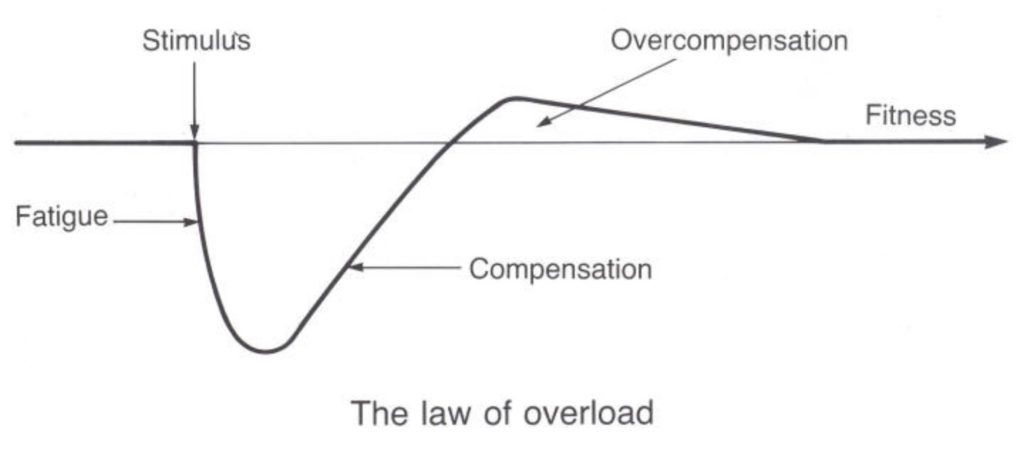
Progressive overload
Repeatedly overloading the body (i.e. training regularly) can lead to improvements in fitness, whether this is muscular strength or cardiovascular endurance, for example.
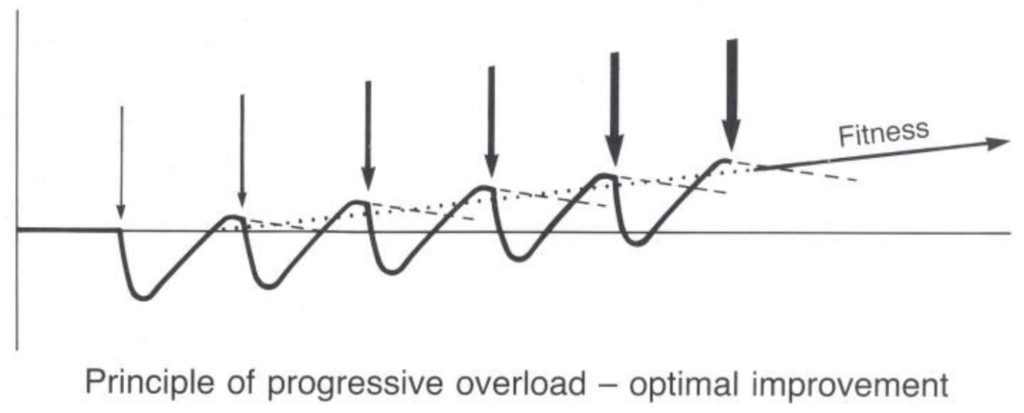
Exercise intensity, recovery, and adaptation
How hard you push yourself when you exercise (the exercise intensity) will also have an effect on the amount by which your fitness improves.
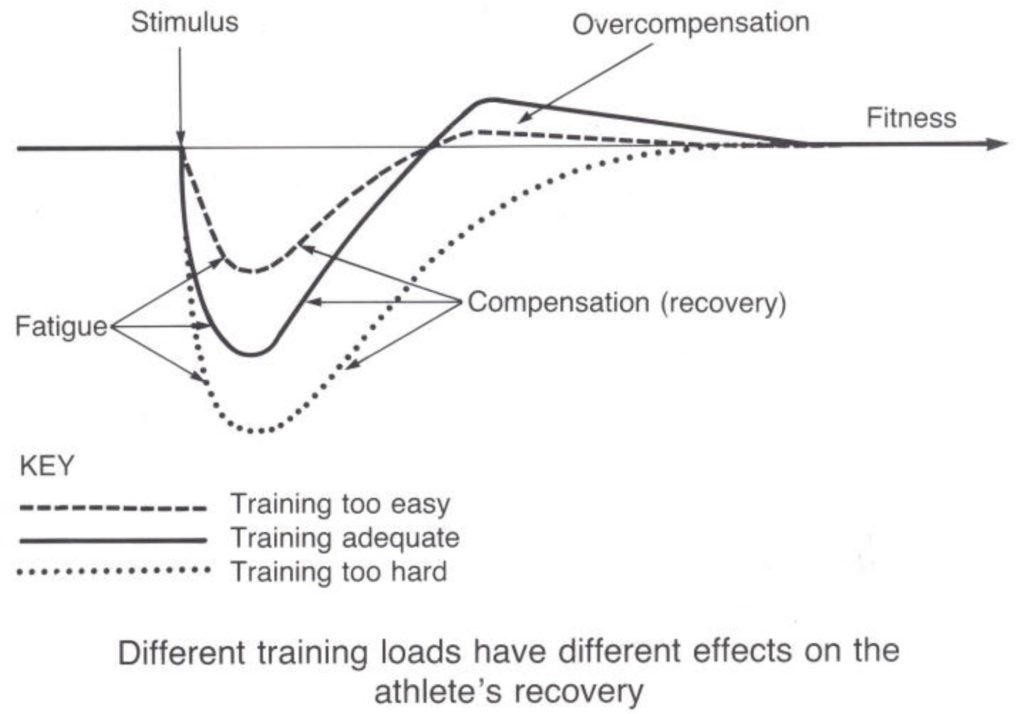
The importance of adequate recovery time
The body needs time to recover from an exercise session so that compensations and overcompensation can take place. Without allowing for this recovery time improvements in fitness will be very difficult to achieve.
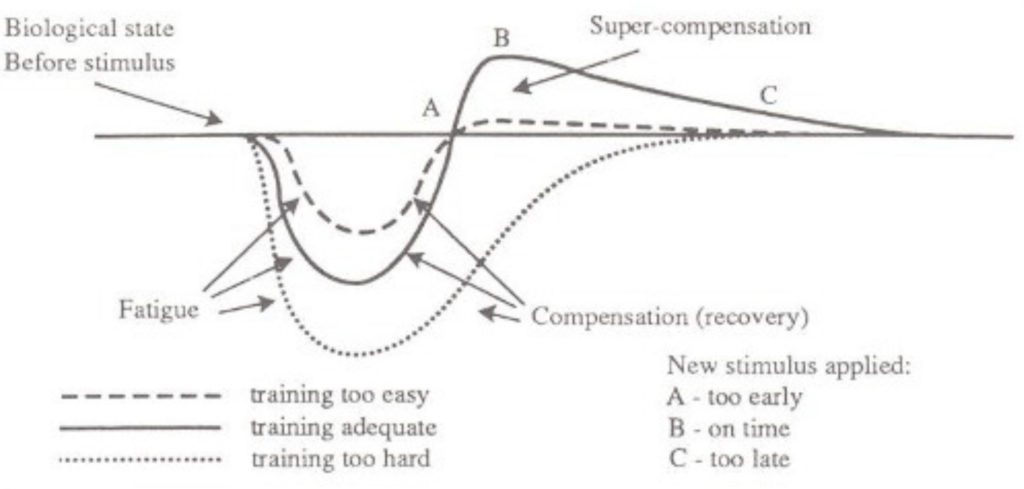
Reversibility
The gains in fitness as a result of regular training will not last forever! If there is too long a gap between training sessions the gains in fitness caused by overcompensation to the previous session will have faded away.
Specificity
Adaptations to exercise are specific to the exercise itself. That is, if you want to improve your endurance (aerobic fitness) you will have to do regular bouts of endurance exercise. This can be running, swimming, cycling, for example. It can also include circuit training where a series of high intensity exercises also result in overload of the aerobic system. However, it doesn’t include weightlifting, which is used to improve strength and power.
If you want to improve your muscular strength you will have to do a strength workout, whether that is with weights, just using your bodyweight, or both. Going for a long bike ride won‘t lead to any big gains in muscular strength.
Summary
Here are the key takeaways for everyone who wants to optimise their exercise programme for the biggest gains in fitness:
- Overload the body‘s systems- you should work hard in your training session so that your body and your muscles become tired. The reaction to this fatigue will be for the body to overcompensate in recovery and build back stronger.
- Allow enough recovery time between sessions – this will give the body enough time to replenish energy stores to overcompensate for the fatigue that you put it through in the exercise session.
- Focus on the specific type of fitness that you want to improve – muscular strength will only improve with strength training and cardiovascular fitness will only improve with aerobic exercise, for example.
In future blog posts I will be delving deeper into the different types of fitness and looking at specific ways in which they can be improved.


